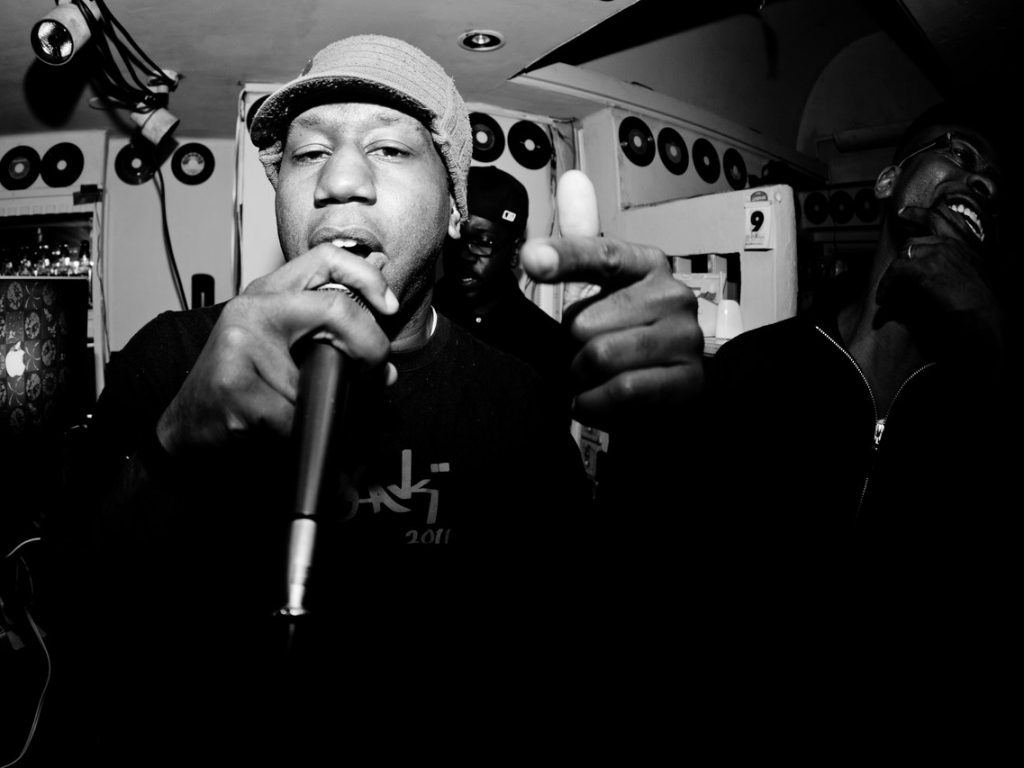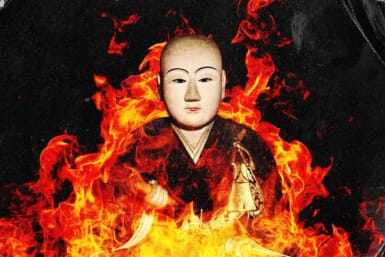In 1983 the film Wild Style introduced hip-hop to a mystified generation of Japanese kids. Thirty-five years on, even though the genre has been diced and retrofitted in Japan to appropriate the inward views of J-Pop, the growing influx of foreigners continues to further embed the music’s earlier incarnations in Japanese culture. So why, then, do active expats of the hip-hop community, who have made their home in Tokyo, feel unwelcome in the local hip-hop scene?
“A Shut Door”
For beat maker D.Dahlinger of Central Valley, California, meeting Japanese producer Pigeon Dust led him to EN Tokyo, a collective of beat makers that get together, dig for records, create on-site soundscapes, and live stream them at dawn. &Beats, a Tokyo version of LA’s beat showcase, Low End Theory, recently invited Dahlinger to do a set. The show’s atmosphere was an incubator of talented beat makers, experimenting under the heavy influence of producers like Flying Lotus, Madlib, J Dilla, and other early 90s production. But the obvious omission of the night was difficult to ignore: “When I go to these beat shows, there’s rarely an MC performing,” says Dahlinger. Also, most of the heads bobbing to boom bap at the event were Japanese. Aside from a few white foreigners (including Dahlinger), there was one black South African kid, and two African-Americans, which included myself and rapper, Mathew Bailey, aka Rhyming Gaijin (who has lived in Tokyo for 10 years and is arguably the most prolific among his foreign contemporaries in Japan).
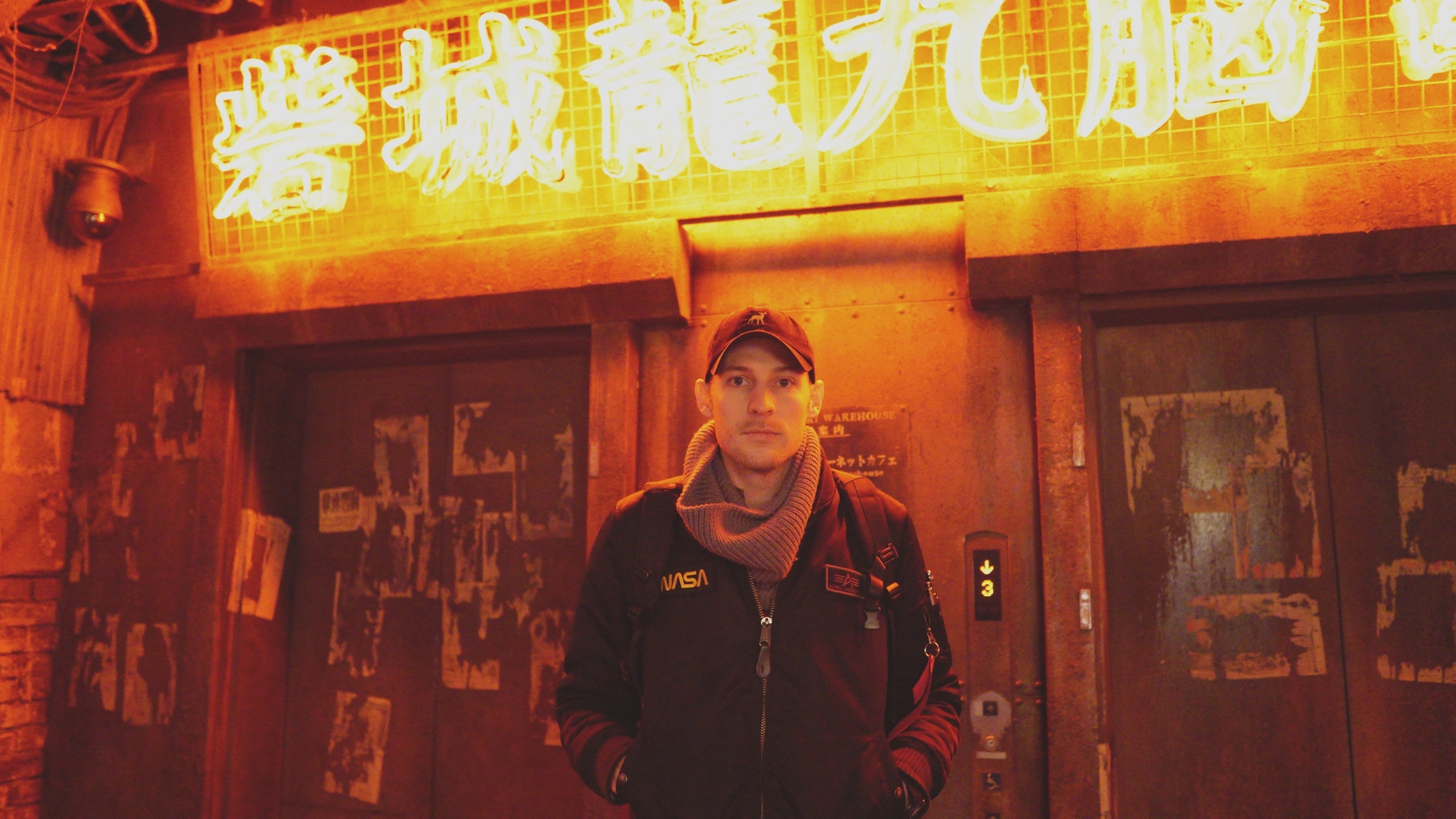
Cal Combs
L.A. rapper and producer Cal Combs is straightforward about Japan’s hip-hop scene, calling it “a shut door.” Combs has spent three years in Tokyo and has managed to garner a following, releasing several albums and music videos. “There’s foreigner hip-hop and there’s Japanese hip-hop,” says Combs. “There’s no mixture and that’s not really at the fault of the foreigners. Japanese hip-hop has sectioned itself off. There’s a foreigner behind big events that happen in Tokyo. But there’s hella big hip-hop events for Japanese that are closed door. They’re quiet mouth. You’re getting a text message if you’re coming to that one. With this many foreigners out here doing the same thing, you shouldn’t be going to a hip-hop event and it be all Japanese.”
Creating Their Own Scene
Separated by language and custom, foreign and Japanese hip-hop events are parallel worlds that celebrate black culture without hardly intersecting. Rapper Shad AD from Sacramento, California, is an eight-year Tokyo dweller and show promoter. When he first got here he went to Japanese open mic events that labeled themselves as “black music.” But he found himself performing to bewildered all-Japanese crowds. Natives would tell him he didn’t understand hip-hop music. “It was like they were trying to school me on West Coast hip-hop when I’m from the West Coast,” he says. “It was so uncomfortable that I gave up trying to rap inside Japanese circles. And that’s when I started hosting my own events and parties.”
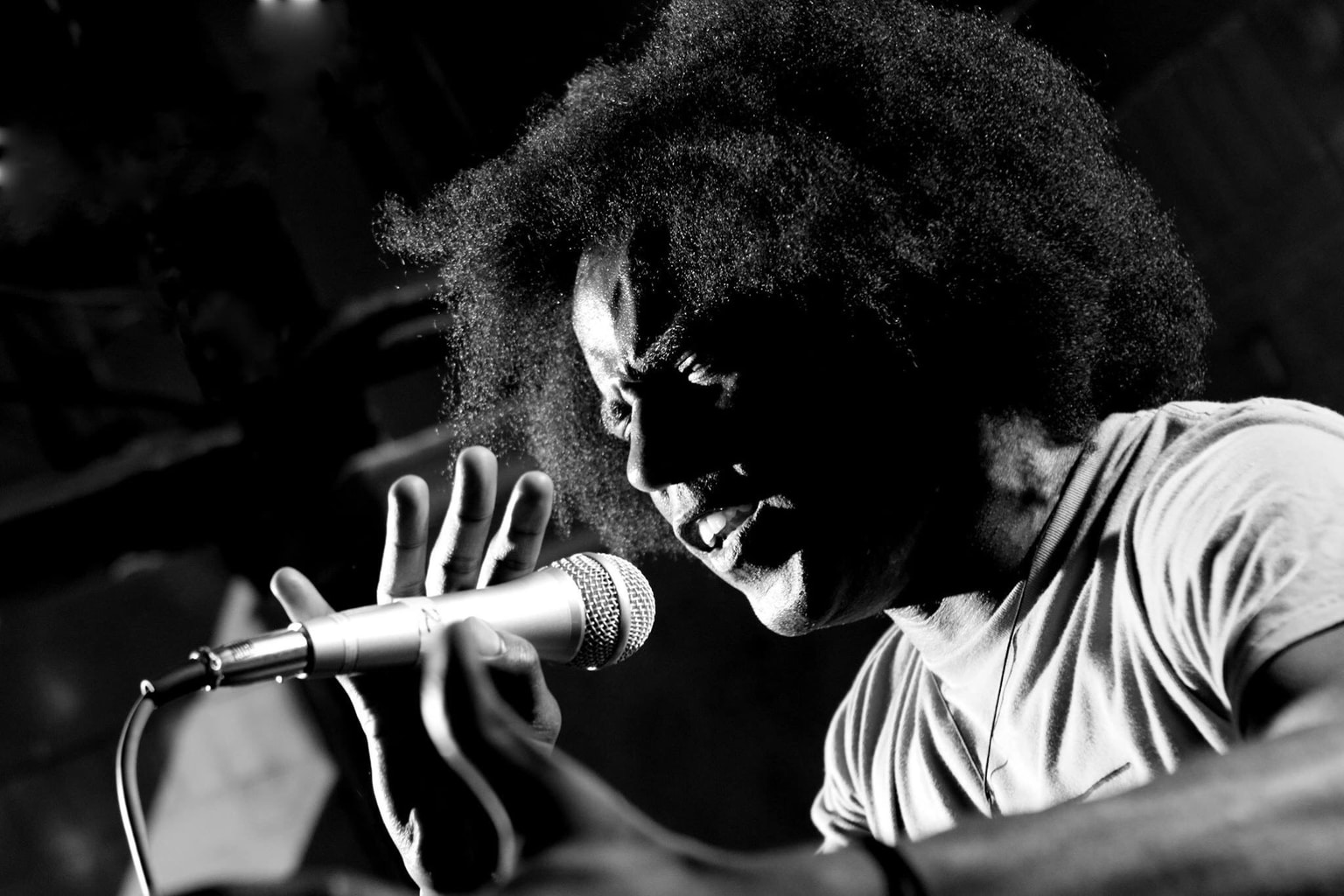
Shad AD
Dancer and choreographer Brooklyn Terry has gone a similar route, choosing to host his own parties in collaboration with Japanese DJs Kango and Sarasa. After years spent touring as a backup dancer for the likes of Mariah Carey and Will Smith, Terry moved to Japan from New York in 2008. “My [dance] crew Elite Force, we actually taught the whole first, second, and third generation of hip-hop dancers in Japan,” says Terry, who continues to train tomorrow’s dancers at his N.D.S. dance studio. Even though he’s immersed in the local hip-hop culture, Terry still feels a significant difference in the vibe and demographics of Japanese hip-hop events versus the parties he hosts. “I noticed that in Japan, foreign people go to hear foreign DJs. Japanese people only go to hear Japanese DJs, especially at the Japanese parties. They’re always so homogenous. For me, that’s not what hip-hop is. I was fortunate to grow up in a time when hip-hop was just sprouting in New York. The beauty of hip-hop is that it’s never been homogenous. It’s always been this and that, all together to create this new thing,” he says.
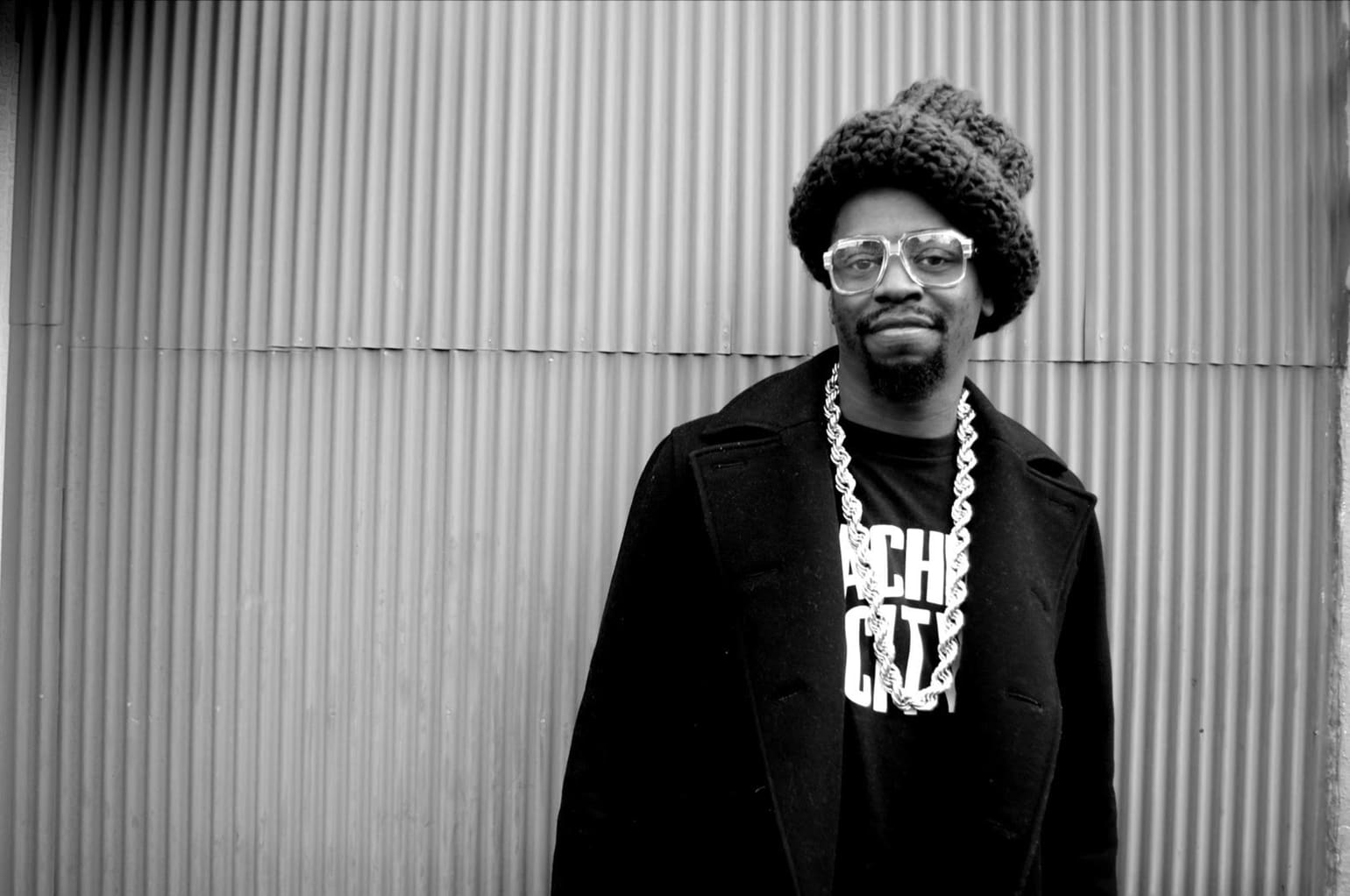
Brooklyn Terry
Also taking the scene into his own hands is Toronto native DJ Adam Williams (aka DJ Putafeche). He has been spinning at Shibuya’s Coins Bar for almost 20 years. Williams and his friends DC3, DnZ, and Shux Wun together formed The Breakdown, a biweekly hip-hop party. “I decided to DJ to get an old school hip-hop scene going. Tokyo has a scene for everything but finding it is the hard part,” says Williams. “I couldn’t find it for myself so I made it.”
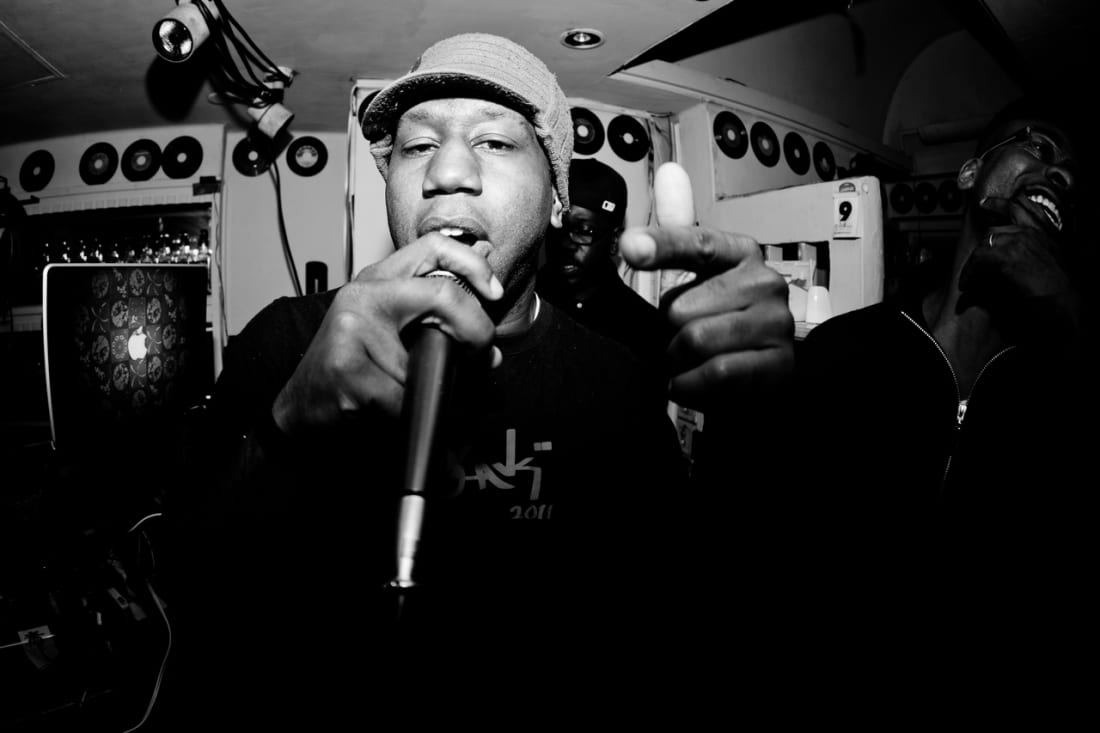
Shux Wun
Taking things one step further, DJs Mega (from Hawaii) and Late (from Atlanta) have founded the freshly minted Mega Late Show, a Tokyo-based hip-hop podcast. Already 40 episodes deep, they’ve interviewed Maseo of De La Soul, rapper Skyzoo, and various Tokyo-based artists such as Afrodyty, Jayda B, and Cirrrcle. A hyped Mega calls it “the number one hip-hop podcast in Tokyo.” A little more modestly, he says, “All we want to do is make [Tokyo] feel more like home … like a community between people who are outsiders. We’re trying to highlight everything that’s dope out here.”
For heads fresh off the 747 – and even for long-time expats – Tokyo can feel like a barrage of distorted frequencies, blocking like minds from finding each other. But don’t trip. You are now in-tuned.
Top image: Shux Wun

